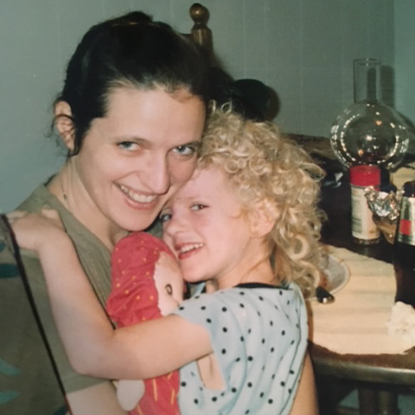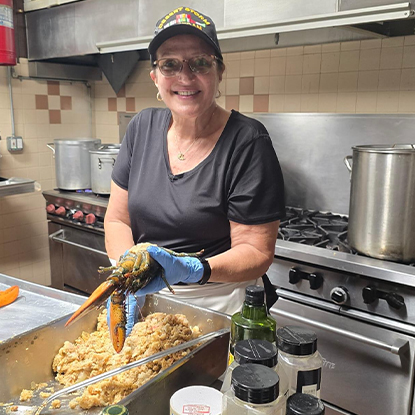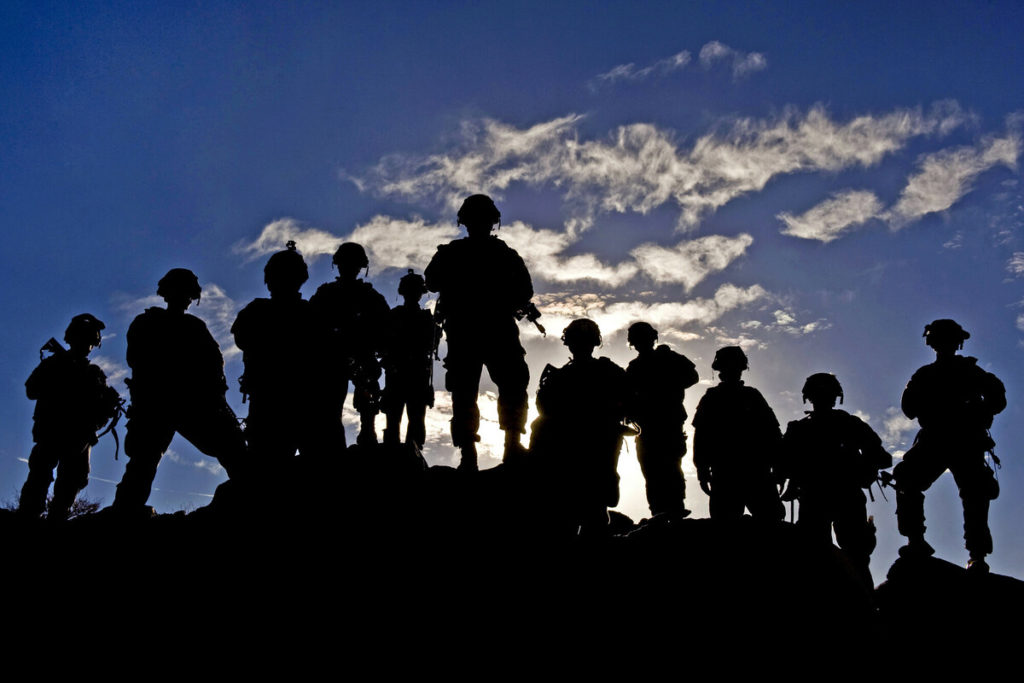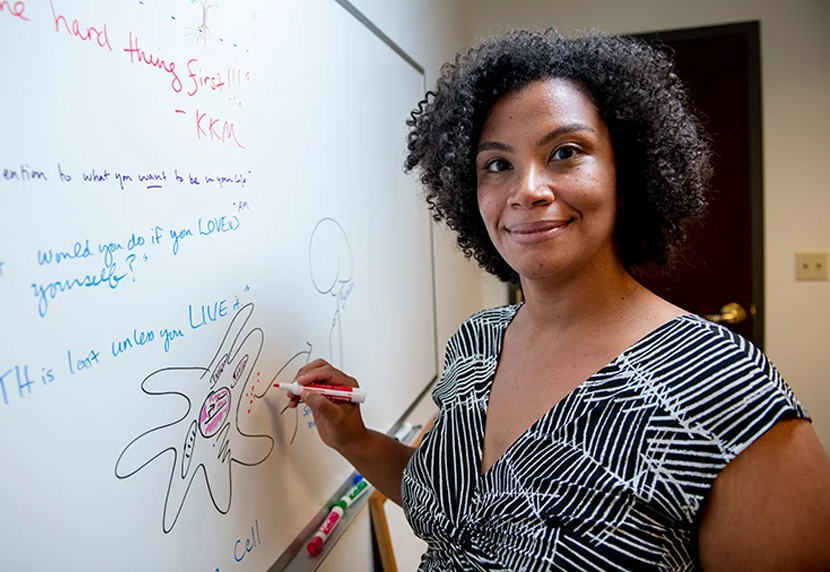Patty Ryan spent nearly 30 years serving her country in the Rhode Island Army National Guard, deploying as a Military Police Officer to Saudi Arabia during Desert Storm and as a Logistics Officer to Kuwait and Afghanistan in 2008. But her desire to serve others didn’t end when she retired as a colonel at age 52: she now uses the skills she gained from culinary school in cooking demonstrations at Home Base, a national program through Massachusetts General Hospital dedicated to healing the invisible wounds of war through world-class, direct clinical care, wellness, education and research.
“When they look at our volunteers, our patients see someone there to support them during what can be a tough program, someone who can identify with them and sympathize with what they’re going through.”
Patty is one of a handful of volunteers with Military connections who offer their time, energy and skills during Home Base’s Intensive Clinical Program (ICP). Patty, along with Myles McConnon, who worked with the Military engineering community to develop radar and electronic warfare systems, and retired healthcare executive and Home Base Leadership Council member Kim Olson, help by greeting participants, offering directions, setting and cleaning up and engaging in conversations during the cooking demonstrations. All three want to be a comforting, steady presence for Veterans and Service Members confronting post-traumatic stress disorder (PTSD), lasting effects of traumatic brain injuries (TBI), depression, anxiety and other traumas.
“Because of my length of service, and that I did a couple of deployments, I feel like I can relate to some of the PTSD issues, apprehension and anxiety that go along with being in a group of Veterans,” Patty says. “Also, as a woman who served, I faced a lot of challenges, and can lend a lot in that way, especially to other women who might feel overwhelmed or misunderstood.”

“Interacting with the Veterans and Service Members during the cooking demos makes Home Base’s mission feel very real and tangible,” says Kim, whose father and uncles served in the Military. “You can see how this program is filling an unmet need and sets the foundation for making a difference in their lives.”
Fostering a Healing Environment
Home Base has several volunteer opportunities throughout the year for the general public, such as the Memorial Day flag planting on Boston Common, the annual Run to Home Base at Fenway Park every July and events to remember the victims of the Sept. 11, 2001, terrorist attacks and to commemorate Veteran’s Day. Home Base also has partnerships with Project Adventure, which specializes in experiential education in Beverly, Massachusetts, and with local horse farms which provide evidence-based equine therapy.
All volunteers in the ICP, though, have served, have relatives who served or have other direct connections to the Military. ICP is an outpatient treatment program for Veterans and their Families that packs two years of treatment in a two-week program, combining evidence-based therapy with complementary and alternative medicine. Because they share similar backgrounds, ICP volunteers can relate to program participants in informal settings — which is especially beneficial given the program’s rigor.
“When they look at our volunteers, our patients see someone there to support them during what can be a tough program, someone who can identify with them and sympathize with what they’re going through,” says Home Base Volunteer Coordinator Jose Navarro-Robles. “We make sure all our volunteers in the clinic are aware of what patients might be experiencing. It’s a safe space.”
“Throughout ICP, I try to bring in my appreciation for these great warriors,” says Myles, who has volunteered with Home Base since 2016. His two uncles served in World War II and his father helmed the math department at Norwich University, a Military academy in Northfield, Vermont. “I also have an incredibly high regard for the Home Base crew and the dedication they put into the program. And it shows in the results — it’s outstanding to see how it helps those in need.”
Bringing Creativity — and Levity — into the Kitchen
The ICP’s first week can be emotionally draining, and the cooking demonstrations during the second week of the program provide a release that Patty sees firsthand. She grew up as one of 16 children in Lincoln, Rhode Island, and owned a small diner at age 21 before her Army National Guard service, so she’s comfortable navigating the kitchen. That ease extends to her interactions with ICP patients.

“Cooking is just one of those universal things,” Patty says. “Even if someone doesn’t know how to cook, we get into the kitchen, everyone works together and they can still be creative in their own way. That makes a big difference and helps them relax.”
“Volunteers fill in the small but essential gaps, which significantly contributes to the sense of community and trust we strive to build,” says Home Base Clinical Dietician Emily Poznanski, MS, RD, LDN. “It’s often clear that just having someone there who’s genuinely engaged and encouraging creates a sense of ease, especially in group settings where some Veterans might feel hesitant or unsure. I consider our tight-knit group of volunteers here an extension of our clinical family.”
Each of the Home Base volunteers hopes that their efforts — no matter how small they seem — make a difference for Veterans as they take meaningful steps in their healing process. They’re also spreading the word about how others can support a group that has made immense sacrifices to protect American freedoms.
“Whenever I tell people about volunteer opportunities, I tell them about Home Base,” Patty says. “Anything we can do for this program is amazing.”
To learn more about volunteer opportunities at Home Base, contact us.





